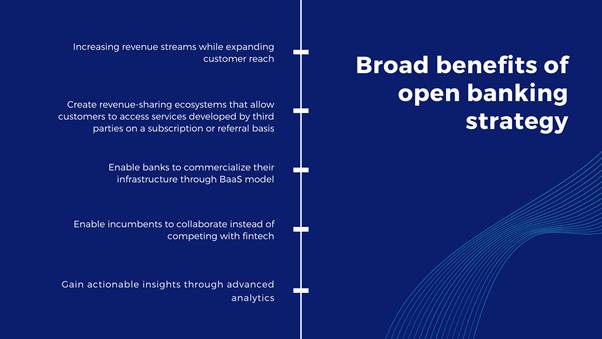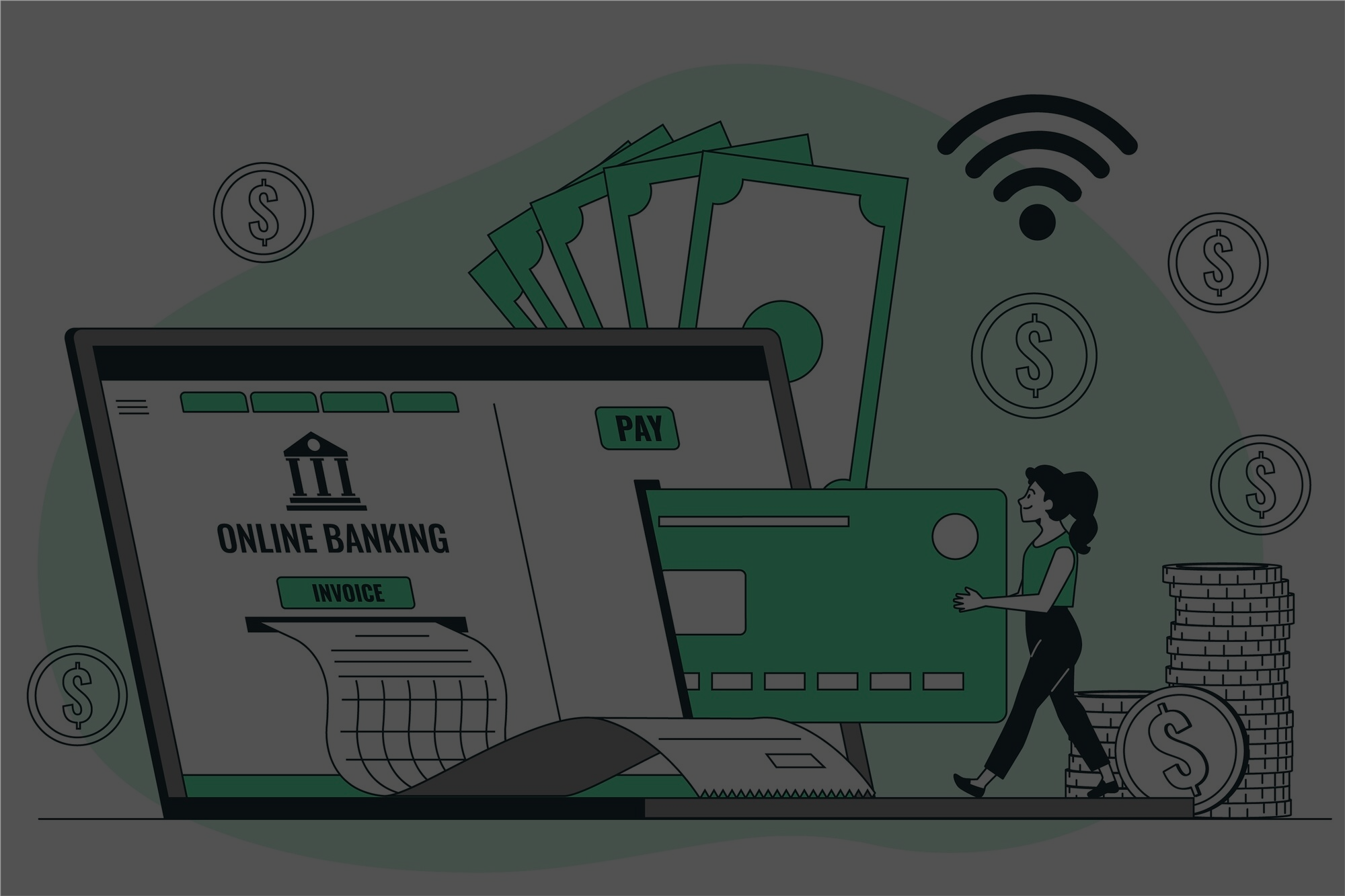Open Banking APIs - Driving the future of the banking sector
We're moving towards an interesting time in the world of banking. While banks and fintech service providers are busy optimizing their current Open APIs using the conventional banking industry solutions, consumers are enjoying greater control over their financial data. The focus is now on strengthening existing Open API capabilities while ensuring safe and responsible data management practices across sectors.
In the first of my three-blog series on Open APIs, I will take you through open banking and RESTful APIs and why they are so critical from a banking perspective. So let’s delve deeper into the world of open banking APIs and find out what’s happening out there and what fintech stand to gain by adopting them.
So when financial institutions open up their application programming interfaces or APIs to enable third parties to access relevant financial information for building apps and services, we are referring to open banking.
Essentially, these are a set of codes and protocols that govern interactions and communications to ensure safe practices. They are critical when you look at Banking-as-a-Service or BaaS - the functionality that enables third-party vendors and fintech to connect to banks' systems to provide a more streamlined and seamless service to consumers while nurturing an ethical environment in a highly dynamic industry.
Open banking gives greater financial transparency for all concerned offering better customer experiences across the globe. While doing so, it also compels incumbents to either improve their services or collaborate with others who can help them enhance their service offerings.This is where an IT solutions company can help, with their software development services.
Banking as a Service - BaaS and digital transformation - examples
In 2018, BBVA came out with its BaaS open platform that enabled third parties to provide great financial products to consumers without necessitating them to offer a full suite of banking services. Likewise, HSBC through its Connected Money App in May 2018, gave the perfect solution to the open banking regulations in the UK that gave consumers greater control over their financial data. Not to forget, the simplicity and ease it offered to consumers for accessing all banking products including loans, mortgages, credit cards, etc. in one place.
As per Juniper research, the number of digital banking users will soar from 2.4 billion in 2020 to 3.6 billion by 2024 - a whopping surge of 54 percent putting the focus on digital transformation in banks and fintech. The research further confirms the growth of digital-only banks as compared to traditional banks for the unparalleled customer experiences they offer.
While Bank of America offered extensive solutions in the digital arena including its highly engaging Erica chatbot, JPMorgan Chase leveraged blockchain to up its digital game. As research author Nick Maynard elaborates, “These banks have executed highly effective digital transitions; however digital transformation is never complete. These banks must now refocus on the new strategies required to retain their digital leadership.”
Barclays too was not far behind and in fact, claimed to be the first bank in the UK to allow customers to account aggregation through a mobile banking app. Customers could view their accounts with other banks too while using Barclay's mobile app. Banks and fintech are all leveraging open banking in interesting ways to push the envelope for better and smarter banking.
An example architecture of Banking as a service (BaaS) would be as below.

Fig: Banking as a service (BaaS)
Open banking strategy - Look at what Mastercard did
In a bid to strengthen its open banking strategy, Mastercard recently entered into an agreement with Finicity - one of the top providers in North America for real-time access to financial data and insights - to leverage its technology and talent. Given the company's longstanding partnerships with fintech and financial institutions the world over, this collaboration further strengthens Mastercard's commitment to consumer-centric data protection and practices while ensuring that consumers have a say in the way their information is being used.
Explains Steve Smith, chief executive officer and co-founder of Finicity. “Enabling people to access and control their data, while ensuring best practices to protect that data will continue to drive tremendous innovation that increases financial literacy, inclusion, and health. This partnership with Mastercard helps us accelerate this mission globally.”

Broad benefits of open banking strategy
- Increasing revenue streams while expanding customer reach
- Create revenue-sharing ecosystems that allow customers to access services developed by third parties on a subscription or referral basis
- Enable banks to commercialize their infrastructure through BaaS model
- Enable incumbents to collaborate instead of competing with fintech
- Gain actionable insights through advanced analytics
RESTful APIs and open banking API framework
Representational STATE Transfer or REST or RESTful APIs were designed to leverage existing protocols and HTTP thus eliminating the need for installing additional software or libraries while creating them. They provide unparalleled flexibility while offering other privileges such as handling multiple types of calls, returning different data formats, and making structural changes with the right implementation of hypermedia to meet the diverse needs of customers and businesses.
Meant to accelerate the digital transformation journeys of banks, the open banking API framework is purpose-built.

Fig: what Open banking API framework offers?
Open banking API framework offers:
- Horizontal capabilities including access and user authentication, elasticity services, exception handlers, etc. to ensure compliance as well as security.
- Standard query and transaction capabilities to facilitate typical tasks such as customer account aggregation, fund transfers, digital payments, etc.
- Collaboration avenues with niche service providers to enable anti-money laundering, cross border transactions, etc.
Open Banking Use Cases
- Cash/money management system
Open API can enable individuals to access all their bank accounts through a common mobile app and also transfer funds to other accounts. - AI apps
When integrated with artificial intelligence apps, Open API allows consumers to scan a cheque via an app or a reader, change it into a digital cheque immediately and drop it into a virtual dropbox for further processing. - Cash access
Open API enables consumers to use their cards via a mobile app. It allows them to get cash from an ATM by tapping it or use it for purchases in retail outlets. - Integration with IoT
Open API allows connectivity and communication among cables, routers, appliances, and electronic devices. - Chat bots
Open API allows consumers to manage their financial portfolio and even advise you on investments. - FX Conversion
Open API can help you access current and historic foreign exchange rates and even the best conversion rates.
Embracing open banking to accelerate digital transformation
Thanks to APIs, banks are able to offer native solutions in a plug and play manner. From allowing consumers to check their credit score in real-time to notifying banks about address change of customers, there are numerous ways in which banks are strengthening the relationship with their customers with APIs. What's more, APIs have provided safe and agile means to attend to customer needs and enhance customer engagement.
If you are keen on embracing open banking, feel free to contact us at TransformHub - an innovative digital transformation company. Our team of experts offer digital transformation services and fintech solutions that can help you with innovative ways to increase your digital revenue and change traditional banking methods. Our IT consulting services can help you build the open banking value chain with ease and efficacy. Call our software development company today.
Share this
You May Also Like
These Related Stories

5 Reasons Why Banking and Financial Services Organizations are Building a Digital Workforce

Using AI To Your Advantage in Banking & Finance




